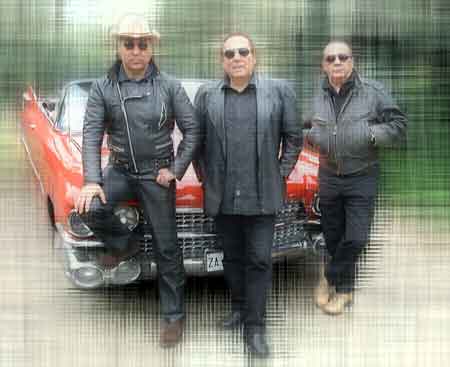Moody Blue:"Nights In White Satin"

Ho difeso il mio amore
(4:11, 1,43Mb)
 Dik Dik : Songo Beat, 2000
Dik Dik : Songo Beat, 2000
(4:11, Stream)
 Dik Dik : Songo Beat, 2000
Dik Dik : Songo Beat, 2000
Dik Dik

since 1965:
Erminio "Pepe" Salvaderi (guitar, vocals)
Pietruccio Montalbetti (guitar, bass, vocals)
Giancarlo "Lallo" Sbriziolo (guitar, vocals)
Mario Totaro (keyboards)
Sergio Panno (drums)
mid 70's:
Erminio Salvaderi (guitar, vocals)
Roberto Facini (guitar)
Joe Vescovi (keyboards)
Pietruccio Montalbetti (bass)
Nunzio "Cucciolo" Favia (drums)
Many pop bands from the sixties had to face the new musical tastes at the turn of the seventies, and I Dik Dik were one of these, and like I Giganti and Equipe 84, they kept the same line-up, simply evolving into a more progressive inspired sound.
The group had been playing together since around 1965, their distincitive name deriving from an african gazelle, with their first single and album coming out respectively in 1966 and 1967, and had a successful career as many others in the pop/beat field, especially with some foreign tracks' covers (like Sognando la California from Mamas and Papas' California dreaming and L'isola di Wight from Michel Delpech's Wight is Wight).
Their only progressive effort came in 1972, the long-named Suite per una donna assolutamente relativa, an eleven-tracks album mainly based on keyboards and with good lyrics by Herbert Pagani.
As in other similar cases (Terra in bocca by I Giganti or Id by Equipe 84), it didn't have the attention the band expected. Young audiences considered them to be an old group, while the old fans didn't appreciate the change in musical style.
After a line-up change, with only two of the original members remaining and newcomers including former Osage Tribe drummer Cucciolo and Trip keyboardist Joe Vescovi (later replaced by Roberto Carlotto a.k.a. Hunka Munka, Dik Dik returned to a more commercial style with their later works.
Source:
http://www.dikdik.it


![]() Dik Dik : Songo Beat, 2000
Dik Dik : Songo Beat, 2000

![]() Dik Dik : Songo Beat, 2000
Dik Dik : Songo Beat, 2000
